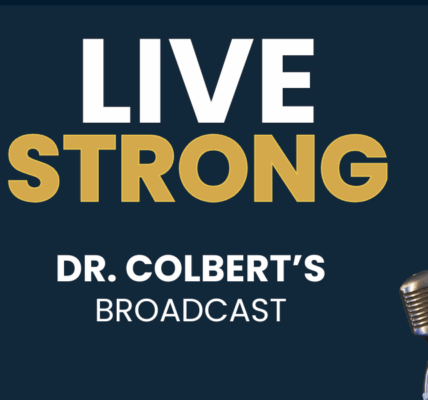There are many benefits to a ketogenic diet. Not only does it promote a healthy weight, normalized blood sugars, and more, but it also supports an energized brain.
In fact, keto enables your brain to use available energy better while altering its DNA to make brain cells better energy producers. Together, these changes optimize energy, focus, clarity, and youthful brain traits.
Are you ready for a more youthful and energized brain? Here’s why and how to start.
Ketogenic Diet 101 and An Energized Brain
As you may already know, the ketogenic diet mimics starvation. While this may sound like a bad thing, it’s actually great. When in “starvation mode,” due to a lack of carbohydrates, the body transitions into a metabolic state called ketosis.
Typically, we humans are fueled by glucose. Glucose comes from any digested carbohydrate, or from gluconeogenesis (the making of glucose from other substrates) in the body. Once we digest carbs, they are broken down and transported to cells to be used for energy. If we overeat them, they are stored as glycogen in the liver or muscle tissue. If we overeat more, they promote fat storage.
When humans vastly reduce carbohydrate intake, such as in the ketogenic diet, an amazing thing happens. The body moves to its back-up plan. The liver begins making ketones, derived from fats in the diet or body. These ketones, specifically β-hydroxybutyrate (BHB), acetoacetate, and acetone, flow from the liver to the bloodstream and are taken up by organs around the body. Including the brain.
Meanwhile, the body keeps blood sugars normalized via gluconeogenesis, creating just enough blood glucose from amino acids and fatty acids.
How does the brain fit in?
The brain is especially hungry and stingy for energy. Its primary energy source in a normal state is glucose. In fact, it cannot use fats directly, but it can use ketones. The brain accounts for about 20% of your total energy expenditure. This is a huge amount for a small, seemingly sedentary organ. But, it has a lot of work to do.
What are Mitochondria?
Mitochondria are membrane-bound, tiny organs within cells. They are the energy producers in the cells. They take chemicals, which are absorbed by cells, and convert them to ATP. ATP includes a high-energy phosphate bond, which powers the cells to perform their functions.
Muscles have a lot of mitochondria because they need more energy. As do the kidneys, livers, and to a lesser extent, the brain.
Unfortunately, mitochondria can also become damaged and may produce less ATP energy, or worse, reactive oxygen species (ROS) that damage the cells. This can affect the entire organ or body (1). It can expedite aging in the brain, age-related neurological issues, and unhealth in the body (6).
In small amounts, ROS can actually stimulate the brain to increase and repair mitochondria. This process, termed mitohormesis, is strongly influenced by diet or exercise. For example, ketosis can increase mitochondrial respiration and production, inducing mitohormesis.
In large amounts, ROS from poor lifestyle habits, damaged mitochondria, and the environment can cause harm throughout the brain and body (2).
Your Brain on Keto
Ketones are a great friend to your brain. They can energize, revitalize, and even may even reverse signs of aging in its cells
Lab studies have found that ketones improve markers of mitochondrial creation and increase their oxygen consumption rate (OCR). What’s more, they suggest that after progressive mitochondrial dysfunction from oxidative stress, ketones promote compensatory mechanisms that improve mitochondrial function again (3).
Other studies have found improved gene expression to encode mitochondrial enzymes and energy metabolism in the hippocampus when exposed to ketones. The hippocampus is a part of the brain important for learning and memory. Unfortunately, its cells often degenerate in age-related brain conditions, With increased energy reserve from ketones, neurons may be able to continue to function in a healthy manner rather than exhaust or die (4).
Lastly, a ketogenic diet may also inhibit a major source of brain oxidative stress, or neuronal stress, as well. In a study of brain injury, ketone treatment enhanced mitochondrial function, reduced oxidative stress, and supported overall neurological function (5).
What Does it Mean to Have an Energized Brain?
For many who start a ketogenic diet, an energized brain means consistent clarity and focus. It means not dealing with the energy ups and downs associated with a high-carb diet.
Behind the scenes, it means healthy, increased mitochondria numbers and production. There’s really no downside to helping your mitochondria, the energy producers of each cell and your whole body, perform well.
How to Start a Ketogenic Diet
We have great news! You can start a ketogenic diet today and experience an energized brain. Start with our Easy Keto Zone 5-Step Start Guide. Join our Keto Challenge. And, to give your body a ketone jump-start, consider adding a well-formulated exogenous ketone source, such as Instant Ketones, to your diet.
Bottom Line
A ketogenic diet can give you a revitalized and energized brain. It starts with tiny ketone chemicals and their impact on tiny organelles inside tiny cells. But, the collective impact is powerful.









